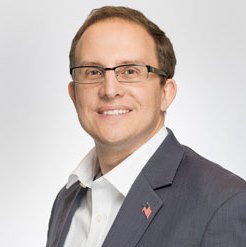Mount Sinai Health System in New York is committed to integrating diversity, equity, and inclusion (DEI) practices into the fabric of its culture. This conversation with Chief Marketing Officer and Vice President of Marketing and Communications Karen Wish and Manager of Marketing and Communications Kaylyn Kendall Dines illuminates the path to authentically connect with diverse communities.
Q: Why is this an important topic for today’s healthcare marketing and communications professionals?
Wish: DEI is an important topic for healthcare marketing and communications professionals who want to build trust with a wide range of patients while purposefully viewing business practices through an equity lens. Here at Mount Sinai, diversity, equity, and inclusion are more than buzz words. These core values are embedded into the health system’s culture. As marketers, we want to authentically connect with a wide range of individuals and families while showing how our brand delivers value and meets their needs. It starts with demonstrating how our clinicians and researchers are finding ways to improve health and wellness outcomes for all people. The foundation of marketing’s commitment stems from a DEI roadmap, which was developed by the Office of Diversity and Inclusion (ODI) at the Mount Sinai Health System.
For more than 200 years, the mission of Mount Sinai has been to serve our communities, especially those ignored, oppressed, or facing bias. Guided by a strong moral and ethical foundation, we are a leader in gender equity and racial diversity, equity, and inclusion.
As the nation grapples with the history of social and systemic racism, healthcare professionals have the unique opportunity to improve systems and enhance care for diverse communities. Within the Marketing and Communications Department at Mount Sinai, we looked in the mirror and assessed our practices. To align with standards established by our system’s ODI, the Marketing and Communications team looked beyond messaging and promotions. Instead, we explored best practices and identified strategies for addressing equity within our sphere of influence. In the winter of 2020, we established four strategies that became our roadmap: Ongoing Team Education, Supplier Diversity and Engagement, Media Buying, and Community Outreach.
Q: Can you share some examples of how Mount Sinai is integrating DEI practices into its organizational culture?
Dines: Marketing and Communications leaders at Mount Sinai aligned with our health system’s diversity, equity, and inclusion principles and core values. These are key drivers for excellence and innovation in healthcare delivery, medical and health education, and research. Leaders in our department believe it is important to ensure DEI principles are incorporated into the tapestry of our departmental culture. Two examples of strategies our team deployed include Ongoing Team Education and Supplier Diversity and Engagement.
Mount Sinai’s ODI is focused on providing educational opportunities so staff members have the necessary tools to have brave conversations about racism, equity, and inclusion. Consistent with ODI’s approach, we believe education is a core strategy for expanding our team’s capacity and ability to engage in the system’s anti-racism and equity efforts. As a department, we are collectively accountable, and we stand in support of the educational direction ODI established for the health system.
Another strategy we implemented is Supplier Diversity and Engagement. Through a partnership with Mount Sinai’s Supply Chain team, we reviewed our overall marketing spend with all vendors who provide the services we use every day. From there, we aligned with the health system’s plan that includes a benchmark for engaging vendors who achieved designations as diverse suppliers.
Q: What can attendees expect to take away from this session and implement within their own organizations?
Wish: Our session will focus on how Mount Sinai’s Marketing and Communications team proactively launched an initiative to address unconscious bias and fairness in the workplace. We will describe why the Diversity, Equity, and Inclusion in Medicine and Science (DEIMS) initiative was created and how it supports the elimination of racism.
The session is about highlighting our initiative for incorporating DEI into Marketing and Communications practices. We will talk about ongoing actions for integrating DEI standards into the fabric of our departmental culture through best practices, sustainable community-outreach strategies, and assessing current processes and business structures to identify and address gaps related to DEI.
We look forward to facilitating an interactive discussion and presenting details about educational opportunities on anti-racism, diverse supplier engagement, media buying, and community outreach.
Get more actionable insights at HMPS21
Learn more about this critical topic and meet the Mount Sinai marketing team at this year’s Healthcare Marketing & Physician Strategies Summit (HMPS21)! Register here.
This post was developed in partnership with True North Custom, Media Sponsor for HMPS21.

Jason Skinner is director of marketing at University Surgical Associates, one of the largest multi-specialty surgical groups in the southeast. He has 20 years of experience in strategic healthcare marketing and communications, having previously served as CMO at True North Custom and in the corporate marketing department at Encompass Health. Jason also serves on the board for the East Tennessee chapter of the American College of Healthcare Executives.


